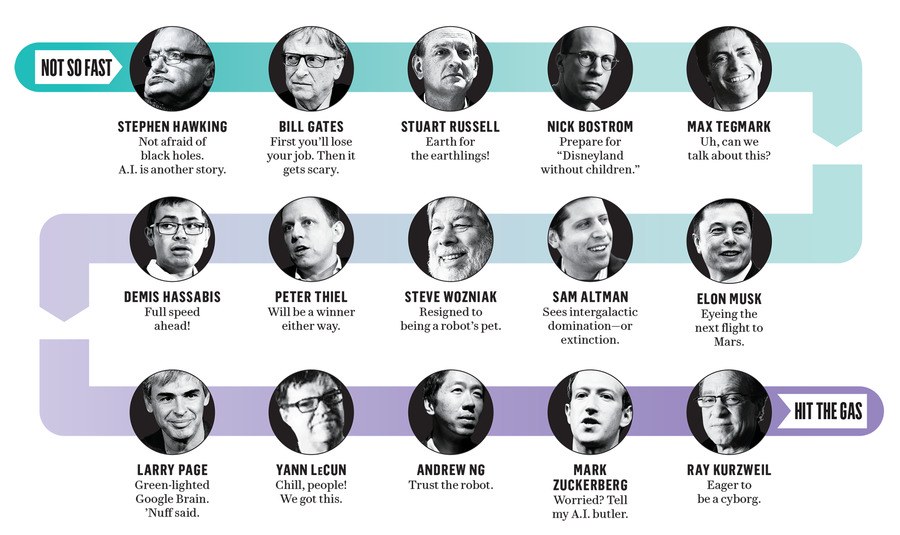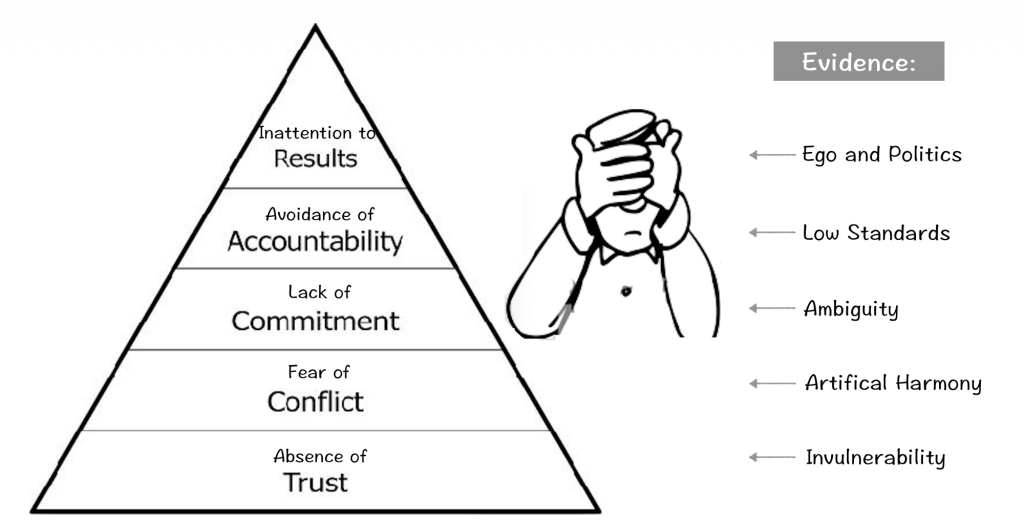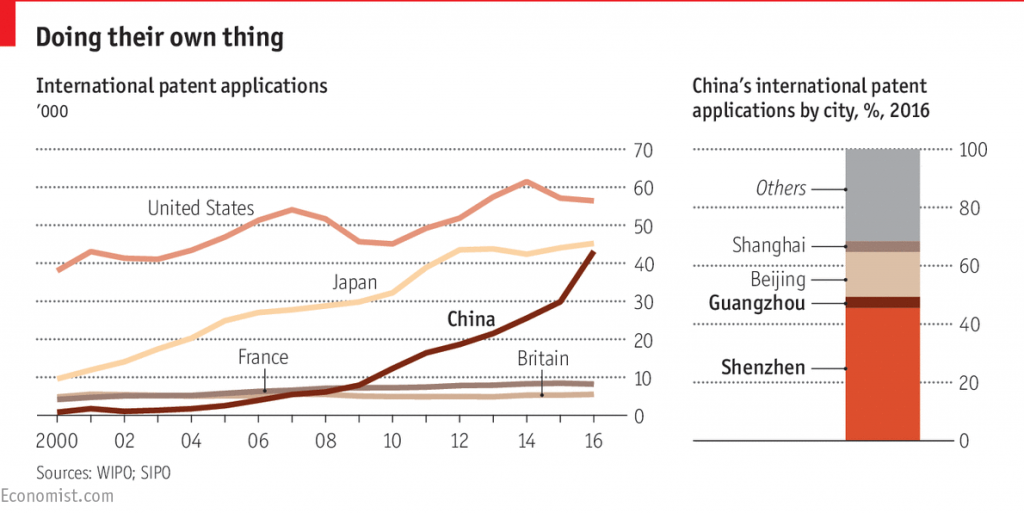Decades of Pain
[avatar user=”malm” size=”small” align=”left” link=”file” /]
Jack Ma suggests the world needs to prepare for “decades of pain” caused by social disruptions resulting from technological unemployment:
In the next 30 years, the world will see much more pain than happiness. Social conflicts in the next three decades will have an impact on all sorts of industries and walks of life.
No-one will be insulated from its effects. Here in the UK the government is being urged to help low skilled workers whose jobs will be replaced by robots in huge numbers in relatively short order according to a recent report from the Institute for Public Policy Research (IPPR):
More than 10m jobs in the UK – a third of the total – are thought to be at risk from automation within the next two decades and the IPPR said the scale of the challenge required urgent action.
There was also evidence to suggest that the impact of automation would be geographically concentrated and so widen the north-south divide.
The IPPR research said that in four sectors alone – retail, hospitality, transport and manufacturing – 5m jobs were at risk, adding that a particular concern to ministers should be industries ripe for automation with a high proportion of workers least able to adapt.
Although the impact will be significant enough in the West, technological unemployment will hit the developing world the hardest:
A World Bank report found that two-thirds of all jobs in the developing world face being automated out of existence, although the rate that this will happen is uncertain and “depends on the the pace of technological disruption.” Moreover, despite Western fears of the coming robo-apocalypse, the report also notes that the “share of occupations that could experience significant automation is actually higher in developing countries than in more advanced ones, where many of these jobs have already disappeared.”
Add to this incendiary mix the simply shocking disparity in income gains in the last ten years and suddenly it doesn’t seem unrealistic 100 years on from the Bolshevik Revolution to imagine history repeating itself:
Income gains going to top 1% in
1954-7: 5%
1975-9: 25%
2009-12: 95%https://t.co/qJ7ZBYmd9O pic.twitter.com/ZmBQucq8TA— Conrad Hackett (@conradhackett) April 27, 2017
Little wonder the recently released TV adaptation of Handmaid’s Tale has garnered rave reviews. It serves as a cautionary tale to all those who complacently think we’re at the end of history and moving forward together when, in fact, we could be moving backwards, apart.
Appropriately, the Paris Review has chosen to revisit the legendary apocalyptic post-nuclear holocaust classic Threads. First unveiled to stunned audiences in 1984 the film’s bleak, brutal depiction of life nasty, brutish and short eked out in the dystopian hell after The Bomb still retains the power to haunt today:
In its harrowing vision of Britain after a nuclear war, pretty much everyone dies eventually, while rats, maggots, and the class system endure. … Threads’s second half, with its glimpse of the erasure of history, stands as a reminder of what little difference any international doctrine makes after a certain point.
Artificial Intelligence
An intuitive, and extremely detailed, guide to Recurrent Neural Networks and LSTMs with case studies and an example implementation.
The Guardian on the Simulation Hypothesis that statistically it is far more likely we are living in a computer simulation of reality than the real thing. It’s not really that dissimilar to the Hindu concept of Maya.
Long VanityFair profile piece on Elon Musk focusses on his crusade to stop malevolent AI. It’s clear Musk sees humanity at a pivot point. As his OpenAI collaborator Sam Altman put it:
It’s a very exciting time to be alive, because in the next few decades we are either going to head toward self-destruction or toward human descendants eventually colonizing the universe.
The article positions Musk at the lower end of the AI skeptic-enthusiast spectrum:
Keep on running. Not only is it good for your health, the collective qualia from running are an immersive human experience that will arguably be impossible to entirely replicate in disembodied form.
Management and Innovation
The loneliness of the long-distance CEO.
Patrick Lencioni’s five dysfunctions of a team revisited. Or why genuine teamwork is elusive. The link contains this handy pyramid highlighting how results and everything else ultimately build on trust. The TRACC acronym I use to remember the five dysfunctions is apparent within the pyramid.
Alan Kay on Quora answers what made Xerox PARC special. The process and management were key but ultimately it was down to long-term thinking and having the right people in the right place at the right time:
Parc was highly concentrated with regard to wealth of talents, abilities, vision, confidence, and cooperation. There was no real management structure, so things were organized to allow researchers to “suggest” and “commit” and “decommit” in a more or less orderly fashion.
People are the key to Netflix’s success too as highlighted in this LinkedIn piece from a recent starter answering the question “What’s it like to work for Netflix?” And if they don’t fit in, they get moved on sharpish:
What is different here is that once a situation is accepted as irredeemable, managers move to make changes quickly. No one gets to hide behind “performance improvement plans” designed to prevent lawsuits.
Profile of UK-based smartphone gun for hire Bullitt and their bullish CEO Peter Stephens who is not shy at talking up the virtues of being based in the Thames Valley.
Interesting take on product roadmaps and why they are often ineffective. These things ought to be in any sensible one:
- Broad time frames
- Themes by time frame
- High-level product goals (as covered above)
- Metrics for measuring each stage’s progress
- Risks and considerations
- Status of each stage
- Sales and marketing effects
The Economist on the changing landscape in Shenzen aka Silicon Delta. Copycats are out and innovators are in as evidenced in this dramatic uplift in international patent applications emanating from China in the last ten years:
Politics
Jeremy Corbyn is doing a lot better than many commentators understand and those that think he isn’t have arguably been brainwashed by the Mainstream Media (or MSM has Corbyn acolytes like to disparagingly refer to it).
You may not agree with all or any of Corbyn’s policies, but it should trouble you that newspapers exercise power and influence in a number of ways. It is not just that they have a giant megaphone letting them dominate the public debate/thought. They have privileged access to politicians (just check out Rupert Murdoch’s recent wedding guest list) and have the ability to effectively set the political agenda.
Brexit represents the end of the road for the middle-class dream of a Mediterranean lifestyle retirement much loved and parodied over the last 30 years.
Donald Trump’s Art of the Deal has the perfect quote to describe his ineffectual, scatterbrained approach to policy. As long as he’s looking busy on the outside, that seems to be all that counts:
What the bulldozers and dump trucks did wasn’t important, I said, so long as they did a lot of it.
Culture and Society
Primo Levi’s incomparable If This is a Man is 70 years old. We know and have learnt nothing.
This is hell. Today, in our times, hell must be like this. A huge, empty room: we are tired, standing on our feet, with a tap which drips while we cannot drink the water, and we wait for something which will certainly be terrible, and nothing happens and nothing continues to happen




